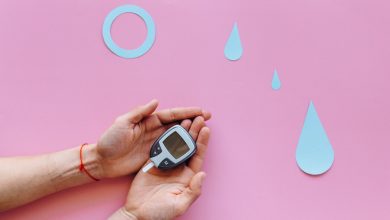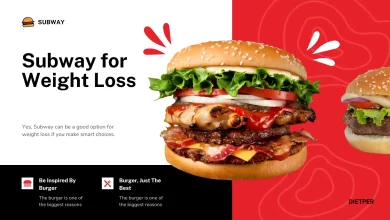7 Day Fast Before and After : Transformational Journey 2023
Cellular Cleanup: Exploring Autophagy in a 7-Day Fast

7 Day Fast Before and After: Fasting is abstaining from food and drinks for a certain period, usually for health, religious or spiritual reasons. Fasting can benefit the body and mind, improving metabolism, blood sugar, inflammation, immunity, brain function, and mood. However, Fasting can also have some risks and challenges, especially for more extended periods.
What Happens to Your Body on a 7 Day Fast Before and After?
When you fast for seven days, your body undergoes several changes affecting your physiology and metabolism. Here are some of the main effects of a seven-day fast:
Glycogen depletion
Glycogen is the stored form of glucose in your liver and muscles. It is the primary source of energy for your cells when you eat regularly. However, when you fast, your glycogen stores are quickly depleted, usually within the first 24 hours. This forces your body to switch to other fuel sources, such as fat and ketones.
Ketosis
Ketosis is a metabolic state where your liver produces ketones from fatty acids. Ketones are an alternative energy source for your brain and muscles when glucose is scarce. Ketosis can have various benefits for your health, such as reducing inflammation, improving insulin sensitivity, enhancing cognitive performance, and protecting against neurodegenerative diseases. However, ketosis can also cause side effects, such as bad breath, nausea, fatigue, and headaches.
Autophagy
Autophagy is a process where your cells recycle and remove damaged or unnecessary components. Autophagy can help your body fight infections, prevent diseases, repair tissues and organs, and slow aging. Autophagy is usually activated by stressors such as Fasting, exercise, and calorie restriction. A 7 day fast can induce a high level of autophagy in your cells, which can benefit your health and longevity.
Hormonal changes
Fasting can affect several hormones that regulate your appetite, metabolism, mood, and stress response.
For example, Fasting can lower insulin levels, improving blood sugar control and reducing the risk of diabetes. Fasting can also increase growth hormone levels, stimulating muscle growth and fat burning. Fasting can also modulate cortisol levels, affecting your stress response and immune system. Fasting can also influence leptin and ghrelin levels, affecting your hunger and satiety signals.
Some Famous Blogs
- The Klinio Diet Plan 1-week Menu and Success Stories 2023
- The BBBE Diet: Your Path to Sustainable Health – Weight Loss
- Repairvite Diet: The Power of Liver Restoration
How to Do a 7 Day Fast Safely and Effectively?
A 7 Day Fast Before and After is something that you should do with proper preparation and guidance. It is a challenging and potentially risky endeavor that requires careful planning and monitoring. Here are some tips on how to do a seven-day fast safely and effectively:
Consult your doctor
Before you start a seven-day fast, you should consult your doctor and get a medical check-up. Fasting is not suitable for everyone, especially if you have any underlying health conditions or take any medications. Your doctor can advise you on whether Fasting is safe for you and how to do it properly.
Choose your type of fast.
You can choose from different types of Fasting depending on your goals and preferences.
- For example, you can do a water fast, only drinking water for seven days.
- You can also do a juice fast, drinking fresh fruit or vegetable juices for seven days.
- You can also do a bone broth fast, where you drink bone broth for 7 days.
- You can also do an intermittent fast, where you eat within a specific window each day (e.g., 16:8 or 20:4). Each type of fast has pros and cons that you should weigh carefully before deciding.
Prepare yourself mentally and physically.
Before you start a 7 day fast, you should prepare yourself mentally and physically for the challenge ahead.
- You should set clear goals and expectations for yourself and write them down.
- You should also inform your family and friends about your plan and ask for their support.
- You should also prepare your body for the fast by eating healthy and light foods a few days before.
- You should also hydrate well and avoid caffeine, alcohol, and nicotine.
- You should also plan your schedule and activities for the fasting period and avoid any strenuous or stressful tasks.
- You should also have some distractions and hobbies to keep yourself motivated.
Monitor your symptoms and signs.
To make sure, During the 7 Day Fast Before and After, you should closely monitor your symptoms and signs and listen to your body.
- You should regularly check your weight, blood pressure, blood sugar, ketones, and other indicators. You should also pay attention to how you feel physically and mentally.
- You should be aware of the common side effects of Fasting, such as hunger, thirst, fatigue, headache, dizziness, nausea, constipation, diarrhea, insomnia, irritability, mood swings, and cravings.
- You were alert for severe or unusual symptoms, such as chest pain, fainting, confusion, fever, infection, bleeding, or severe dehydration. If you experience these symptoms, you should immediately stop the fast and seek medical help.
Break the fast gradually and carefully.
The 7 Day Fast Before and After, you should break the fast gradually and carefully to avoid complications or rebound effects.
- You did not eat or overeat after the fast, as this can cause digestive problems, weight gain, and metabolic disturbances.
- You can start with small amounts of easily digestible foods, such as fruits, vegetables, soups, broths, yogurts, and nuts. Avoiding processed, fried, spicy, or sugary foods for a few days would be best. Drinking plenty of water and fluids to rehydrate yourself would be best.
- You should also resume your regular eating pattern slowly and gradually over a week or more.
What to Expect 7 Day Fast Before and After?
A 7-day fast can affect your body and mind before and after the fast. Here are some of the things that you can expect the 7 Day Fast Before and After:
Before the fast
Before the fast, you may feel excited, nervous, anxious, or curious about the fasting experience. You may also feel hungry or thirsty or crave certain foods or drinks. You may also feel energetic, alert, or motivated to start the fast.
During the fast
During the fast, you may experience various physical and mental changes depending on the type and duration of the fast.
- You may feel more hungry, thirsty, or tired in the first few days of the fast as your body adjusts to the lack of food and energy.
- You may also experience side effects such as headache, nausea, dizziness, or constipation. However, you may also feel more clear-headed, focused, or calm as your body enters ketosis and autophagy.
- You may also notice some improvements in your skin, hair, or nails as your body detoxifies and repairs itself.
- You may also experience some emotional changes, such as mood swings, irritability, or euphoria, as your hormones fluctuate during the fast.
After the fast
After the fast, you may feel relieved, proud, or accomplished for completing the fast.
- You may also feel more hungry, thirsty, or satisfied as you break the fast and enjoy your food and drinks again.
- You may also notice some changes in your weight, body composition, or measurements as you lose some water weight and fat during the fast.
- You may also notice changes in your blood pressure, blood sugar, or cholesterol levels as you improve your metabolic health during the fast.
- You may also notice changes in your appetite, taste buds, or cravings as you reset your eating habits during the fast.
How can I prepare for a 7 Day Fast Before and After mentally?
Preparing for a 7-day fast mentally is as important as preparing for it physically. Here are some tips on how to prepare for a 7 Day Fast Before and After mentally:
- Set a clear and realistic goal
- Do some research and education
- Seek support and guidance
- Practice meditation and mindfulness
- Visualize your success
What are some common mistakes to avoid during a 7 Day Fast?
It would be best if you were careful to common mistakes when you are following 7 Day Fast Before and After:
Not drinking enough water and fluids.
You should drink enough water and fluids during the fast to stay hydrated and replenish electrolytes. You should also avoid drinking too much water or fluids, which can cause water intoxication or hyponatremia. You should aim for about 2-3 liters of water or fluids per day, depending on your thirst, activity level, and climate. You can add lemon, salt, honey, or apple cider vinegar to your water or fluids to enhance the taste and benefits.
Taking any supplements or multivitamins.
You should take some supplements or multivitamins during the fast to prevent nutrient deficiencies and support your health. During the fast, you should especially take some vitamins B, C, D, E, K, calcium, magnesium, potassium, zinc, and iron supplements or multivitamins. You can also take some probiotics, omega-3, turmeric, ginger or garlic supplements, or multivitamins during the fast to boost your immunity, digestion, and inflammation.
Breaking the fast gradually and carefully.
You should break the fast gradually and carefully after the 7-day fast to avoid complications or rebound effects. It would help if you did not eat or overeat after the fast, as this can cause digestive problems, weight gain, and metabolic disturbances. It would help to start with small amounts of easily digestible foods, such as fruits, vegetables, soups, broths, yogurts, and nuts. It would help to avoid processed, fried, spicy, or sugary foods for a few days. It would help to drink plenty of water and fluids to rehydrate yourself. You should also resume your regular eating pattern slowly and gradually over a week or more.
Listening to your body and symptoms.
You should listen to your body and symptoms during the fast and adjust accordingly. You did not ignore or suppress any signs of discomfort, pain, or distress during the fast. You should also be alert for severe or unusual symptoms, such as chest pain, fainting, confusion, fever, infection, bleeding, or dehydration. If you experience any of these symptoms, you should stop the fast immediately and seek medical help.
Not having a positive attitude and mindset.
- You should have a positive attitude and mindset during the fast and treat it as an opportunity to learn, grow and heal yourself.
- You should not have a negative attitude and mindset during the fast and treat it as a punishment, deprivation, or torture.
- You should also not compare yourself with others or judge yourself harshly during the fast.
- You should also not let external factors or influences affect your mood or motivation during the fast.
- You should also celebrate your achievements and reward yourself after the fast.
7 Day Fasting : Benefits and Dangers
7 days fasting is a type of water fasting that involves abstaining from food and drink, except water, for a week. Some people may try this practice for various reasons, such as religious, spiritual, health, or weight loss purposes. However, 7 Day Fast Before and After ! It is only recommended for some and may have some benefits and dangers.
Some of the possible benefits of 7 days of Fasting are:
Facilitating Weight Loss: A 7-day fast can create a calorie deficit, prompting the body to shift from utilizing glucose to relying on fat as its primary energy source. This transition may contribute to weight loss.
Reducing Chronic Disease Risk: By decreasing markers such as blood pressure, cholesterol, insulin resistance, inflammation, and oxidative stress, a 7-day fast might help lower the risk of chronic diseases like diabetes, heart disease, and cancer.
Fostering Autophagy: One of the potential outcomes of a 7-day fast is the stimulation of autophagy, a process wherein the body breaks down and recycles damaged cellular components. This could result in improved cellular health and functionality.
Boosting Enzyme Activity: Enzymes involved in detoxifying the body may experience heightened production and activity during a 7 Day Fast Before and After, contributing to the removal of harmful substances.
Some of the possible dangers of 7 days of Fasting are:
Dehydration and Imbalance: Engaging in a 7-day fast may lead to dehydration, electrolyte imbalances, and symptoms like headaches, dizziness, fatigue, nausea, constipation, or diarrhea.
Muscle Loss and Deficiencies: Muscle loss and nutrient deficiencies are potential concerns during a 7-day fast. This might also weaken the immune system, slow metabolism, or cause hormonal fluctuations.
Risk of Eating Disorders: For individuals with a history or predisposition to binge eating or eating disorders, a 7-day fast could trigger such behaviors.
Aggravation of Medical Conditions: In some cases, medical conditions may worsen due to a 7-day fast. Additionally, if you’re on medication that necessitates regular food intake, Fasting may interfere with its efficacy.
Frequently Asked Questions (FAQs)
Q1: How much weight will you lose if you fast for 7 days?
The weight you will lose if you fast for 7 days depends on factors such as your starting weight, height, age, gender, activity level, metabolism, and fast.
Q2: Can you fast for 7 days safely?
Fasting for 7 days is not something you should do without proper preparation and guidance. It is a challenging and potentially risky endeavor that requires careful planning and monitoring. Fasting for 7 days is not safe for everyone, especially if you have any underlying health conditions or take any medications.
Q3: How often should I do a 7-day fast?
The frequency of doing a 7-day fast depends on your goals, preferences, and health status.
Q4: Is it safe to fast for a week?
A. Fasting for a week can have some benefits, such as promoting weight loss, blood sugar control, and inflammation reduction.
Q5: What is the most extended safe fast?
A. There is no definitive answer to this question, as different people may tolerate fasting differently depending on their health status, body composition, and lifestyle factors.
Q6: How many days is safe to fast?
A. Again, this depends on the individual and the fasting method they choose.
People Also Ask
1. What happens to your body on a 7-day fast?
During a 7-day fast, your body shifts from using glucose to burning stored fat for energy. This can lead to weight loss, improved mental clarity, and activation of cellular repair processes like autophagy.
2. Is it possible to have a 7-day fast for cell repair?
A 7-day fast triggers autophagy, a process where your cells break down and recycle damaged components. This aids in cellular repair, rejuvenation, and overall health improvement.
3. What to drink on a 7-day fast?
Staying hydrated is essential. Consume water, herbal teas, and electrolyte-rich drinks. Avoid sugary or caloric beverages, as they can disrupt the fasting state.
4. 7-day fast weight loss results?
Weight loss during a 7-day fast varies, but initial water weight loss and fat burning contribute to noticeable results. On average, people lose around 1-2 pounds per day.
Before-and-after pictures from a 7-day water fast showcase physical changes such as reduced bloating, enhanced skin quality, and potential weight loss. However, results vary.
5. What is 7-day fast autophagy?
A 7-day fast stimulates autophagy, a cellular cleaning process. It breaks down damaged cellular components, promoting rejuvenation and potential health benefits.
6. Write a Review on a 7 day fast before and after Reddit.
On Reddit, individuals share personal stories of their experiences with a 7-day fast. These stories often discuss motivations, challenges, and the transformational changes they observed.

Final Words
A 7 Day Fast Before and After is a powerful and transformative practice that can have various effects on your body and mind. It can help you lose weight, improve your health, enhance your brain, protect against diseases, and age gracefully. However, it can also have drawbacks, risks, and challenges that you should be aware of and prepared for. Therefore, you should do a 7-day fast with caution, care, and guidance.
Disclaimer
This blog post aims to empower you to make informed and health-conscious food choices. Your well-being is of paramount importance, and it’s essential to prioritize your health before embarking on any restrictive diets. Therefore, if you have any concerns, it is highly advisable to seek guidance from a healthcare professional or registered dietitian before making dietary changes.




